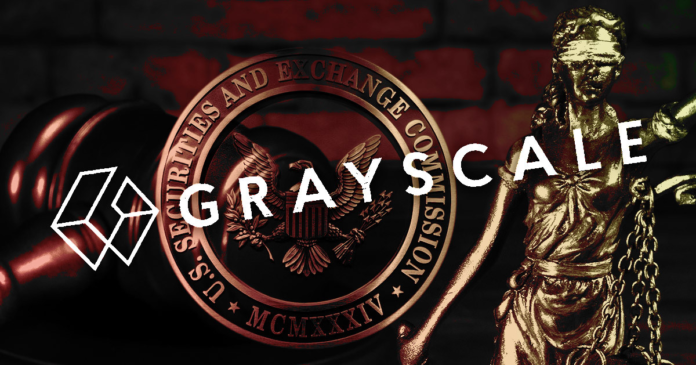Rallying support for a U.S. spot Bitcoin exchange-traded fund (ETF), Digital Currency Group (DCG) CEO Barry Silbert said it is time the SEC approved one.
The comments came as Grayscale Investments, a subsidiary of DCG, filed its opening brief against the securities regulator, which has continually rejected and delayed spot BTC ETF applications.
Grayscale currently operates a Bitcoin trust product and had previously applied to convert it into an ETF. In late June, the SEC rejected Grayscale’s application, citing concerns over market manipulation and the role of Tether (USDT) in the broader crypto ecosystem.
In response, the asset managers filed a lawsuit against the SEC, with Grayscale CEO Michael Sonnenshein saying he was “deeply disappointed” and “vehemently disagree[d]” with the regulator’s decision.
Grayscale argues denial of Bitcoin ETF conversion was unfair
On Oct. 11, Grayscale filed its opening legal brief at the U.S. Court of Appeals for the District of Columbia Circuit, challenging the SEC’s decision to reject the conversion of the Grayscale Bitcoin Trust to a spot ETF.
The brief presented an argument highlighting the SEC’s unfair treatment of such a product. It further pointed out that the criteria used to inform the regulator’s decision was flawed and applied with “special harshness.”
“[The] SEC’s denial of Grayscale’s conversion of Grayscale Bitcoin Trust (GBTC) to spot Bitcoin ETF was arbitrary, capricious, and discriminatory.”
The brief mentioned the SEC’s green light of several Bitcoin Futures ETFs in 2021 and 2022 was inconsistent with its rejection of a spot ETF product. Adding, both spot and futures ETFs derive pricing “based on overlapping indices” and are, therefore, “subject to the same risks and protections.”
“That stark arbitrariness cannot be justified or reconciled with the Commission’s mandate to treat like cases alike. Rather, it can be only understood as a substantive judgment on the merits of a spot Bitcoin investment — the kind of substantive judgment that is outside the Commission’s authority.”
Spot vs Futures
Spot Bitcoin ETFs operate on the actual price of BTC, with a common price capture mechanism being the mean average price according to (say) five credible exchanges. Whereas Bitcoin Futures ETFs are based on futures trading at the CME.
Generally, spot products are used by retail players, whereas futures products tend to be favored by well-capitalized institutional players.
Although differences in spot and futures prices exist due to the different price-driving mechanisms behind each respective market, it is argued that the futures market still derives its pricing from the underlying spot market.
The Bitcoin Futures market is regulated by the Commodity Futures Trading Commission (CFTC), not the SEC.
Credit: Source link























 Bitcoin
Bitcoin  Ethereum
Ethereum  XRP
XRP  Tether
Tether  Solana
Solana  USDC
USDC  Dogecoin
Dogecoin  Cardano
Cardano  Lido Staked Ether
Lido Staked Ether  TRON
TRON  Wrapped Bitcoin
Wrapped Bitcoin  Wrapped stETH
Wrapped stETH  Chainlink
Chainlink  Avalanche
Avalanche  Sui
Sui  Stellar
Stellar  Litecoin
Litecoin  Toncoin
Toncoin  Shiba Inu
Shiba Inu  Hedera
Hedera  LEO Token
LEO Token  USDS
USDS  Hyperliquid
Hyperliquid  Polkadot
Polkadot  WETH
WETH  MANTRA
MANTRA  Bitcoin Cash
Bitcoin Cash  Bitget Token
Bitget Token  Ethena USDe
Ethena USDe  Wrapped eETH
Wrapped eETH  Uniswap
Uniswap  Monero
Monero  NEAR Protocol
NEAR Protocol  Pepe
Pepe  WhiteBIT Coin
WhiteBIT Coin  Ondo
Ondo  Aave
Aave  Bittensor
Bittensor  Aptos
Aptos  Internet Computer
Internet Computer  Dai
Dai  Official Trump
Official Trump  Mantle
Mantle  Ethereum Classic
Ethereum Classic  OKB
OKB  Tokenize Xchange
Tokenize Xchange  Gate
Gate  sUSDS
sUSDS  Sonic (prev. FTM)
Sonic (prev. FTM) 
